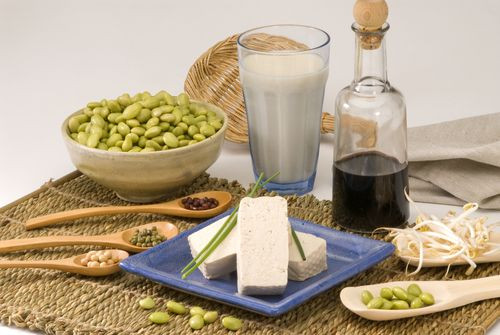Soy Introduced Early In Diet May Help Reduce Cholesterol, Coronary Atherosclerosis In Menopausal Women

Since being introduced to soy in the 17th century, the West has been discovering its myriad health benefits. Now a new study shows that a diet rich in soy may also help reduce cholesterol levels in women and help their heart, if they take it at the right time. The study appears in the online journal of the North American Menopause Society, Menopause.
The scientists at Wake Forest School of Medicine in Winston-Salem, N.C., studied the effect a soy-based diet had on atherosclerosis. Atherosclerosis is the hardening of the arteries that occurs due to plaque build-up inside the arteries. The main culprit for plaque build-up is cholesterol and fatty substances that accumulate around the arteries over time.
The scientists inferred that lifelong soy consumption, like the diet of Asian women, leads to the least coronary artery atherosclerosis. Switching from a soy-rich diet to a Western diet after menopause leads to just as much atherosclerosis as a lifelong Western diet. This may happen to Asian women who have migrated to North America. Finally, switching to soy from a Western diet after menopause only helps if atherosclerosis is already under control.
To arrive at these conclusions, the scientists used cynomolgus monkeys, who had been fed on a soy-diet before and after surgical menopause. Premenopausal monkeys were first fed a diet with protein derived mainly from animal sources or a diet with protein from high-isoflavone soybeans. The monkeys then had a surgery where their ovaries were removed to make them menopausal. The monkeys were divided into groups, and one group continued to eat a soy diet while another switched from animal protein to soy. A third group stuck with animal protein, and a fourth switched from animal protein to soy.
After 34 months, cholesterol levels were checked and researchers found monkeys who ate soy before and after menopause had lower levels of atherosclerosis forming cholesterol. Monkeys that switched to a soy protein diet after menopause, showed significant improvements in their cholesterol levels with lower total LDL and VLDL — the bad cholesterol and higher HDL —the good cholesterol.
But when it came to how much plaque progressed in the arteries, there weren't any statistically significant differences, despite trends favoring a lifelong soy diet and the switch to soy after menopause. But the soy diet did influence the amount of atherosclerosis in the monkeys. It was found that monkeys on a lifelong soy diet had a much lower proportion of complicated plaque in the arteries than the other monkeys.
Also in monkeys who had small plaques in their arteries before menopause, when switched to a soy diet post-menopause, they showed a decrease in the progression of plaque in their arteries. Earlier research like the one from the Women's Isoflavone Soy Health (WISH) clinical trial on atherosclerosis, studied the effect of soy supplements on the hardening of arteries in postmenopausal women. But the current research studied the effects of soy based on the women’s existing diets and heart health before menopause or very early after menopause, when artery plaques may still be small.
"This study underscores how important it is for women to get into the best cardiovascular shape they can before menopause. The healthy habits they start then will carry them through the years to come," said NAMS Executive Director Dr. Margery Gass, in a statement.
Besides reducing menopausal symptoms, the benefits of soy extend to weight loss, brain function, and reducing risk factors of arthritis and breast cancer.
Soy-based products are now available in the form of roasted soybean, soy flour, tofu, tofu yogurt, soy hot dogs, miso, soy butter, soy nut butter, soy ice cream, soy milk, soy yogurt, soy cheese, bean curd, and soy noodles.
Source: Meléndez G, Thomas C, Susan E, et al. Beneficial effects of soy supplementation on postmenopausal atherosclerosis are dependent on pretreatment stage of plaque progression. Menopause.2014.



























